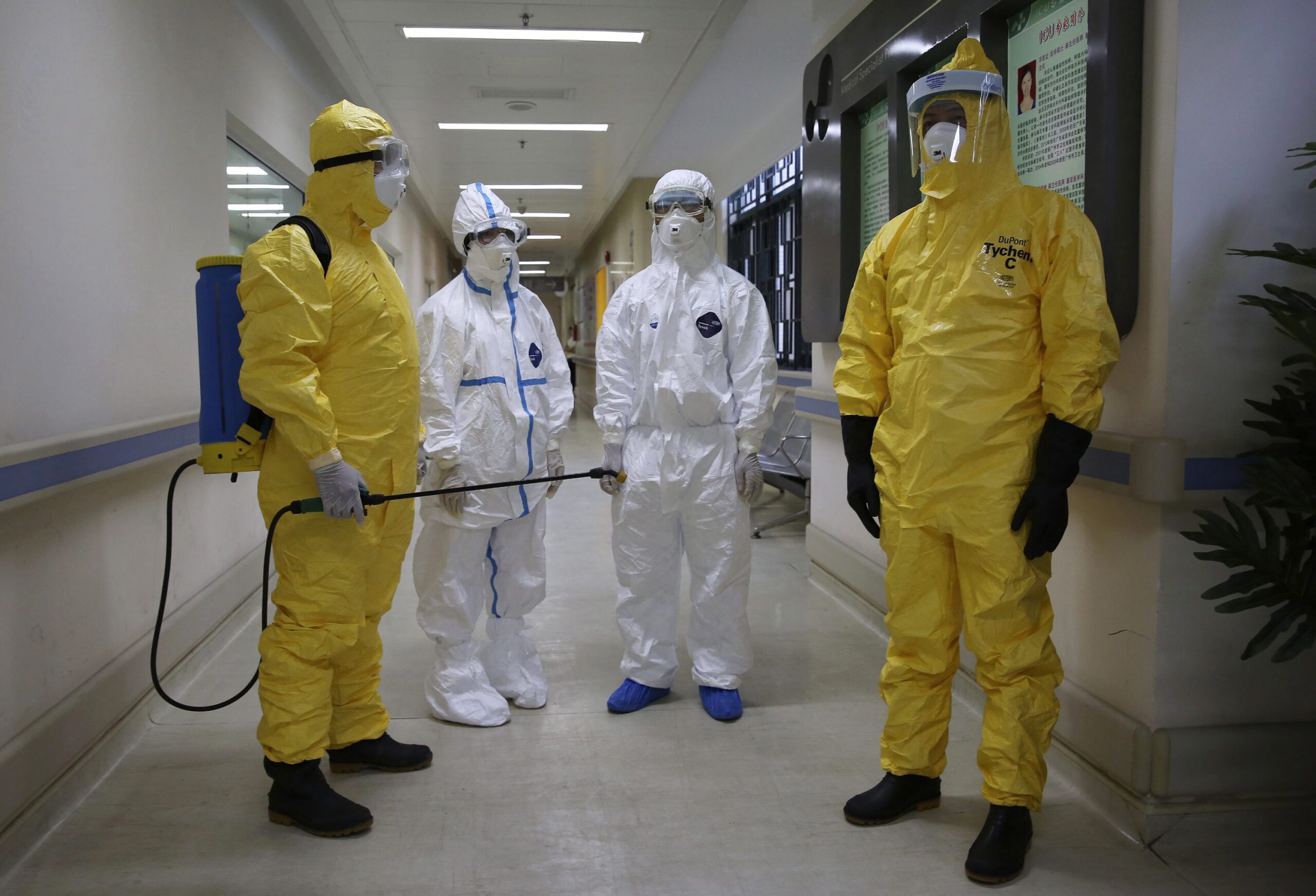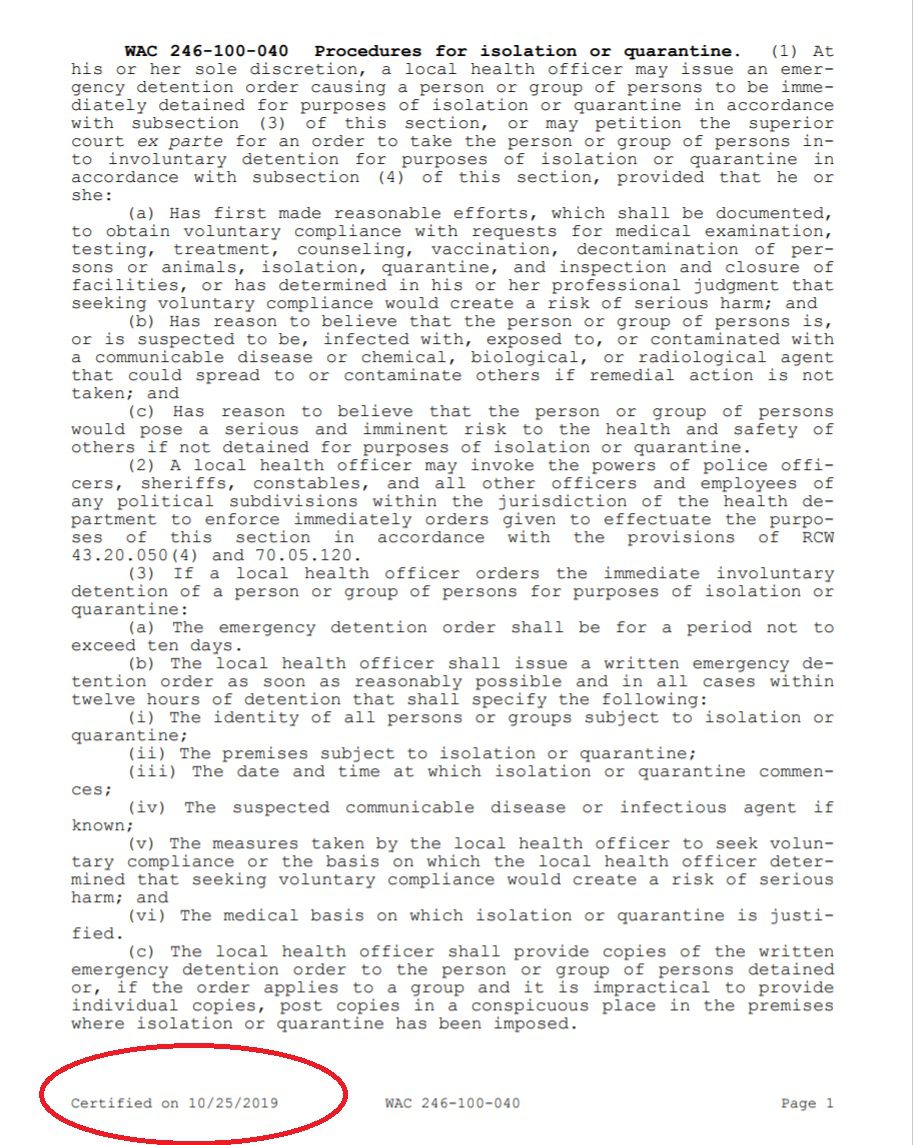Covid origins: Australia’s role in the feedback loop promoting the Wuhan lab leak theory
Security staff keep watch outside the Wuhan Institute of Virology during a visit by the World Health Organization team who investigated the origins of Covid-19. Australian reporting about the ‘lab leak theory’ was picked up around the world. Photograph: Thomas Peter/Reuters
Blanket reporting in News Corp papers has been denigrated for relying on dubious sources – yet the theory itself has taken on new life
Tory ShepherdTue 13 Jul 2021 18.30 BST “BAT MAN” screeched the headline in Sydney’s Daily Telegraph on 28 April 2020. “Chinese scientists linked to virus probe worked in Australia.”
“An exclusive investigation can reveal the Five Eyes intelligence agencies of Australia, Canada, NZ, UK and US, are understood to be looking closely at the work of a senior scientist at the Wuhan Institute of Virology, Peng Zhou, as they examine whether Covid-19 originated from a wet market or whether the naturally-occurring virus may have been released from the level four laboratory in Wuhan that was studying deadly coronavirus pathogens from bats,” Sharri Markson’s story read.
Suddenly, the “Wuhan lab leak theory” had wings in Australia. It was quickly picked up by other media outlets and widely discussed but largely dismissed.
Markson’s reporting was also picked up by the US. Fox News presenter Tucker Carlson, who has close ties to Donald Trump, congratulated her on “an amazing piece of journalism”.
In hunt for Covid’s origin, new studies point away from lab leak theory
The idea that the coronavirus accidentally escaped from the Wuhan Institute of Virology rapidly became woven into conspiracy theories. Some claimed, with no evidence, that the virus had not just been deliberately made (using controversial gain-of-function research) but also intended as a bioweapon. The mainstream media scoffed.
But while the bioweapon theory is still condemned as bunkum, the idea of an accidental leak has recently gained some traction. That shift, in turn, has led to triumphalist claims from Trump supporters and others that the theory was right all along and that media had failed by not taking it seriously.
Markson, now an investigative writer at the Australian, has led local coverage of the institute with a slew of stories airing the lab leak theory, and has written a book called What Really Happened in Wuhan (subtitled “the cover-ups, the conspiracies and the classified research”), due for release in September.
While her reporting in the Australian has stopped short of explicitly claiming that a lab leak was the source of the virus, she has been unequivocal in asserting that a “monumental cover-up” has taken place and that Dr Anthony Fauci, the chief medical adviser to President Joe Biden, knew about “unusual features” of Covid-19 in early 2020 and “needs to resign”.
These views have found limited support in Australia outside her fellow Sky News commentators (the former Speaker Bronwyn Bishop joined others on Sky News in a discussion about the “bioweapon”) and the National party senator Matt Canavan, who declared she had “uncovered the greatest scientific scandal of all time”.
But in the US her reports have fallen on fertile ground in pro-Trump and far-right circles where Fauci has become a hate figure.
In May she appeared on the War Room podcast of Steve Bannon, saying Fauci “must answer” for his alleged involvement in research weaponising viruses. Last month her work was given a double-page spread in the Murdoch-owned New York Post, and she later popped up on Fox News with another former Trump policy adviser, Stephen Miller, the pro-Trump congressman Devin Nunes and a senator, John Barrasso.
A conga line of commentators continue to appear on Fox News claiming the virus is a bioweapon, deliberately manufactured “in [China’s] quest for global domination”, according to one of them.
Elise Thomas was a researcher at the Australian Strategic Policy Institute on subjects including conspiracy theories. She is now an open source intelligence analyst at the global Institute for Strategic Dialogue and a self-described “observer of internet weirdness”.
She describes the feedback loop that happens in western media, when overseas commentators are brought into other media outlets to add credibility – like Markson, held up by Carlson as ballast for his theories.
“What we see … is a variety of sources used to validate, including bringing in people from other places, international media, to make the point that ‘it’s not just us saying it’,” she says.
What’s changed?
So what has changed to make the mainstream media, including the Guardian, look again at the lab leak theory?
No one knows for sure if the virus emerged from the Wuhan lab or the nearby wet market. In the scientific community, there has been no dramatic shift. The broad consensus is that it is possible but unlikely that the coronavirus leaked from the lab.
The shuttered seafood market in Wuhan in January 2020. Photograph: Noel Celis/AFP via Getty Images
An Australian review of evidence last week found that the most likely explanation was still that it came from animals. The paper (which is a preprint, meaning it has not been peer-reviewed and published) found that “while the possibility of a laboratory accident cannot be entirely dismissed, and may be near impossible to falsify, this conduit for emergence is highly unlikely relative to the numerous and repeated human-animal contacts that occur routinely in the wildlife trade”.
But there has been a political shift. Trump, while initially supportive of China’s reaction to the virus’ emergence, later put it about that he had intelligence that it had come from a laboratory. His inflammatory stance, along with his penchant for falsehoods and exaggerations, remains. But his power doesn’t. Biden is no less inclined to accept China’s assurances on what it knows about the origins of the virus but more open to an objective review of the evidence, and has ordered US intelligence agencies to investigate.
Distrust of Trump in many parts of the media bled into distrust of the idea. His replacement by Biden has removed some political toxicity that helped obscure the debate.
When Markson’s initial report came out in 2020, it was panned on the ABC’s Media Watch, which cited experts who said there was no evidence that the novel coronavirus came from the lab. At that stage, the prevailing theory was that it came from zoonotic transmission, from animals to humans, probably in a Wuhan wet market.
“Given all those expert doubts, was this sensational treatment really justified?” asked the Media Watch host, Paul Barry.
“We think not. We also think Markson should have told readers that almost every virus expert had dismissed the lab escape theory.”
A dodgy dossier? How News Corp hyped a US government reading list into a China coronavirus 'bombshell'
Read more
Her sources, and their intentions, were questioned. A follow-up story on the “bombshell dossier” that purportedly gave weight to the lab leak theory, which was splashed across six pages of the Daily Telegraph, came in for sustained criticism in other media when the “dossier” turned out to be merely a summary of publicly available information. That story – again amplified in the US media, where the New York Post called it “a damning dossier leaked from the ‘Five Eyes’ intelligence alliance” – was dismissed by the ABC as relying on a “non-paper”.
More than a year later, the credibility of her sources remains unchanged, and elements of her subsequent reporting have also been questioned. But there is more openness in the media to the idea that the lab leak theory is worth further scrutiny.
“We still don’t really know how SARS-CoV-2 first came to be,” the ABC reported in June. Scientists were unwilling to rule the leak theory out, the Australian Financial Review said. The theory has gone from “fringe to Fauci”, Crikey reported, citing Fauci’s comment that he was “not convinced” the virus originated naturally. Bloomberg’s Michelle Cortez spoke to Danielle Anderson, an Australian virologist who worked at the Wuhan Institute of Virology laboratory. Anderson says it is not likely but not impossible that the virus leaked from there.
Markson says the origins of the virus have always been an “open question” and all she ever wanted was for the theory to be investigated.
“Instead of other media outlets following up the amazing revelations in the story – that they were genetically manipulating viruses in Wuhan – people became obsessed with … the dossier,” she says.
“There was always the possibility of a lab leak. They’re extremely common. It is an open question at this point.”
Markson says the new investigation has “shifted the narrative in Australia as well as globally”.
Anthony Fauci in the White House. Photograph: Rex/Shutterstock
“It’s great that Biden, a Democratic president, looked at the same intelligence as Trump and [former secretary of state Mike] Pompeo, and concluded, ‘There’s something here, we need to have a proper look at it.’
“Isn’t finding out why millions of people have died more important than saying that everything Trump says is wrong?”
An Australian medical virologist, Prof Dominic Dwyer, was part of the World Health Organization investigation in January that found that a lab leak was unlikely and that the virus probably came to humans via bats or pangolins.
He says the Australian media had been caught up by political concerns instead of the science.
The complexity of the science makes it difficult for media – particularly generalist reporters, with specialist reporters rarer than ever – to grasp, he says.
“And you had a president who was fostering unproven theories for all sorts of things. That makes the other side of the political divide defensive, so they attack rather than trying to assess the evidence.”
Dr John Lee, a senior fellow at both the University of Sydney’s US Studies Centre and Washington DC’s Hudson Institute, says when the outbreak began, US intelligence agencies were divided. Maybe 60% thought it was zoonotic and 40% thought it came from a lab, he says.
‘Are you kidding me?’ Fauci responds to rightwing attacks over emails
“Trump then politicised it by saying he thought it came from the lab and that caused a lot of the media to dismiss it as a Trump fantasy,” he says. “Trump told so many exaggerations or lies that it was easy to dismiss.
It’s less politicised now, Lee says, so there’s a greater chance the mystery will be solved.
“Now you have a lot of ‘untainted people’, objective people, people without an agenda to push … the evidence is building and you have significant proportions of the scientific, expert, political and intelligence community saying [the lab leak] is a credible theory.”
Dwyer says history shows it can take many years before the full truth of a pandemic’s source is known, while the media and others want quick answers.
“The likelihood of various hypotheses needs to be ranked … you want to try to do it in a stepwise manner based on evidence. And gathering the evidence is slow and often incremental. I appreciate that’s frustrating but that’s the scientific process.
“Some media want an immediate answer. They’re not patient enough to wait for the science to unfold.”
https://www.theguardian.com/world/2...back-loop-promoting-the-wuhan-lab-leak-theory
Security staff keep watch outside the Wuhan Institute of Virology during a visit by the World Health Organization team who investigated the origins of Covid-19. Australian reporting about the ‘lab leak theory’ was picked up around the world. Photograph: Thomas Peter/Reuters
Blanket reporting in News Corp papers has been denigrated for relying on dubious sources – yet the theory itself has taken on new life
Tory ShepherdTue 13 Jul 2021 18.30 BST “BAT MAN” screeched the headline in Sydney’s Daily Telegraph on 28 April 2020. “Chinese scientists linked to virus probe worked in Australia.”
“An exclusive investigation can reveal the Five Eyes intelligence agencies of Australia, Canada, NZ, UK and US, are understood to be looking closely at the work of a senior scientist at the Wuhan Institute of Virology, Peng Zhou, as they examine whether Covid-19 originated from a wet market or whether the naturally-occurring virus may have been released from the level four laboratory in Wuhan that was studying deadly coronavirus pathogens from bats,” Sharri Markson’s story read.
Suddenly, the “Wuhan lab leak theory” had wings in Australia. It was quickly picked up by other media outlets and widely discussed but largely dismissed.
Markson’s reporting was also picked up by the US. Fox News presenter Tucker Carlson, who has close ties to Donald Trump, congratulated her on “an amazing piece of journalism”.
In hunt for Covid’s origin, new studies point away from lab leak theory
The idea that the coronavirus accidentally escaped from the Wuhan Institute of Virology rapidly became woven into conspiracy theories. Some claimed, with no evidence, that the virus had not just been deliberately made (using controversial gain-of-function research) but also intended as a bioweapon. The mainstream media scoffed.
But while the bioweapon theory is still condemned as bunkum, the idea of an accidental leak has recently gained some traction. That shift, in turn, has led to triumphalist claims from Trump supporters and others that the theory was right all along and that media had failed by not taking it seriously.
Markson, now an investigative writer at the Australian, has led local coverage of the institute with a slew of stories airing the lab leak theory, and has written a book called What Really Happened in Wuhan (subtitled “the cover-ups, the conspiracies and the classified research”), due for release in September.
While her reporting in the Australian has stopped short of explicitly claiming that a lab leak was the source of the virus, she has been unequivocal in asserting that a “monumental cover-up” has taken place and that Dr Anthony Fauci, the chief medical adviser to President Joe Biden, knew about “unusual features” of Covid-19 in early 2020 and “needs to resign”.
These views have found limited support in Australia outside her fellow Sky News commentators (the former Speaker Bronwyn Bishop joined others on Sky News in a discussion about the “bioweapon”) and the National party senator Matt Canavan, who declared she had “uncovered the greatest scientific scandal of all time”.
But in the US her reports have fallen on fertile ground in pro-Trump and far-right circles where Fauci has become a hate figure.
In May she appeared on the War Room podcast of Steve Bannon, saying Fauci “must answer” for his alleged involvement in research weaponising viruses. Last month her work was given a double-page spread in the Murdoch-owned New York Post, and she later popped up on Fox News with another former Trump policy adviser, Stephen Miller, the pro-Trump congressman Devin Nunes and a senator, John Barrasso.
A conga line of commentators continue to appear on Fox News claiming the virus is a bioweapon, deliberately manufactured “in [China’s] quest for global domination”, according to one of them.
Elise Thomas was a researcher at the Australian Strategic Policy Institute on subjects including conspiracy theories. She is now an open source intelligence analyst at the global Institute for Strategic Dialogue and a self-described “observer of internet weirdness”.
She describes the feedback loop that happens in western media, when overseas commentators are brought into other media outlets to add credibility – like Markson, held up by Carlson as ballast for his theories.
“What we see … is a variety of sources used to validate, including bringing in people from other places, international media, to make the point that ‘it’s not just us saying it’,” she says.
What’s changed?
So what has changed to make the mainstream media, including the Guardian, look again at the lab leak theory?
No one knows for sure if the virus emerged from the Wuhan lab or the nearby wet market. In the scientific community, there has been no dramatic shift. The broad consensus is that it is possible but unlikely that the coronavirus leaked from the lab.
The shuttered seafood market in Wuhan in January 2020. Photograph: Noel Celis/AFP via Getty Images
An Australian review of evidence last week found that the most likely explanation was still that it came from animals. The paper (which is a preprint, meaning it has not been peer-reviewed and published) found that “while the possibility of a laboratory accident cannot be entirely dismissed, and may be near impossible to falsify, this conduit for emergence is highly unlikely relative to the numerous and repeated human-animal contacts that occur routinely in the wildlife trade”.
But there has been a political shift. Trump, while initially supportive of China’s reaction to the virus’ emergence, later put it about that he had intelligence that it had come from a laboratory. His inflammatory stance, along with his penchant for falsehoods and exaggerations, remains. But his power doesn’t. Biden is no less inclined to accept China’s assurances on what it knows about the origins of the virus but more open to an objective review of the evidence, and has ordered US intelligence agencies to investigate.
Distrust of Trump in many parts of the media bled into distrust of the idea. His replacement by Biden has removed some political toxicity that helped obscure the debate.
When Markson’s initial report came out in 2020, it was panned on the ABC’s Media Watch, which cited experts who said there was no evidence that the novel coronavirus came from the lab. At that stage, the prevailing theory was that it came from zoonotic transmission, from animals to humans, probably in a Wuhan wet market.
“Given all those expert doubts, was this sensational treatment really justified?” asked the Media Watch host, Paul Barry.
“We think not. We also think Markson should have told readers that almost every virus expert had dismissed the lab escape theory.”
A dodgy dossier? How News Corp hyped a US government reading list into a China coronavirus 'bombshell'
Read more
Her sources, and their intentions, were questioned. A follow-up story on the “bombshell dossier” that purportedly gave weight to the lab leak theory, which was splashed across six pages of the Daily Telegraph, came in for sustained criticism in other media when the “dossier” turned out to be merely a summary of publicly available information. That story – again amplified in the US media, where the New York Post called it “a damning dossier leaked from the ‘Five Eyes’ intelligence alliance” – was dismissed by the ABC as relying on a “non-paper”.
More than a year later, the credibility of her sources remains unchanged, and elements of her subsequent reporting have also been questioned. But there is more openness in the media to the idea that the lab leak theory is worth further scrutiny.
“We still don’t really know how SARS-CoV-2 first came to be,” the ABC reported in June. Scientists were unwilling to rule the leak theory out, the Australian Financial Review said. The theory has gone from “fringe to Fauci”, Crikey reported, citing Fauci’s comment that he was “not convinced” the virus originated naturally. Bloomberg’s Michelle Cortez spoke to Danielle Anderson, an Australian virologist who worked at the Wuhan Institute of Virology laboratory. Anderson says it is not likely but not impossible that the virus leaked from there.
Markson says the origins of the virus have always been an “open question” and all she ever wanted was for the theory to be investigated.
“Instead of other media outlets following up the amazing revelations in the story – that they were genetically manipulating viruses in Wuhan – people became obsessed with … the dossier,” she says.
“There was always the possibility of a lab leak. They’re extremely common. It is an open question at this point.”
Markson says the new investigation has “shifted the narrative in Australia as well as globally”.
Anthony Fauci in the White House. Photograph: Rex/Shutterstock
“It’s great that Biden, a Democratic president, looked at the same intelligence as Trump and [former secretary of state Mike] Pompeo, and concluded, ‘There’s something here, we need to have a proper look at it.’
“Isn’t finding out why millions of people have died more important than saying that everything Trump says is wrong?”
An Australian medical virologist, Prof Dominic Dwyer, was part of the World Health Organization investigation in January that found that a lab leak was unlikely and that the virus probably came to humans via bats or pangolins.
He says the Australian media had been caught up by political concerns instead of the science.
The complexity of the science makes it difficult for media – particularly generalist reporters, with specialist reporters rarer than ever – to grasp, he says.
“And you had a president who was fostering unproven theories for all sorts of things. That makes the other side of the political divide defensive, so they attack rather than trying to assess the evidence.”
Dr John Lee, a senior fellow at both the University of Sydney’s US Studies Centre and Washington DC’s Hudson Institute, says when the outbreak began, US intelligence agencies were divided. Maybe 60% thought it was zoonotic and 40% thought it came from a lab, he says.
‘Are you kidding me?’ Fauci responds to rightwing attacks over emails
“Trump then politicised it by saying he thought it came from the lab and that caused a lot of the media to dismiss it as a Trump fantasy,” he says. “Trump told so many exaggerations or lies that it was easy to dismiss.
It’s less politicised now, Lee says, so there’s a greater chance the mystery will be solved.
“Now you have a lot of ‘untainted people’, objective people, people without an agenda to push … the evidence is building and you have significant proportions of the scientific, expert, political and intelligence community saying [the lab leak] is a credible theory.”
Dwyer says history shows it can take many years before the full truth of a pandemic’s source is known, while the media and others want quick answers.
“The likelihood of various hypotheses needs to be ranked … you want to try to do it in a stepwise manner based on evidence. And gathering the evidence is slow and often incremental. I appreciate that’s frustrating but that’s the scientific process.
“Some media want an immediate answer. They’re not patient enough to wait for the science to unfold.”
https://www.theguardian.com/world/2...back-loop-promoting-the-wuhan-lab-leak-theory









